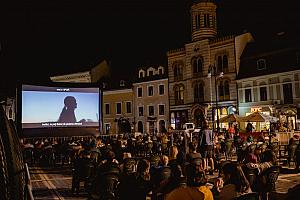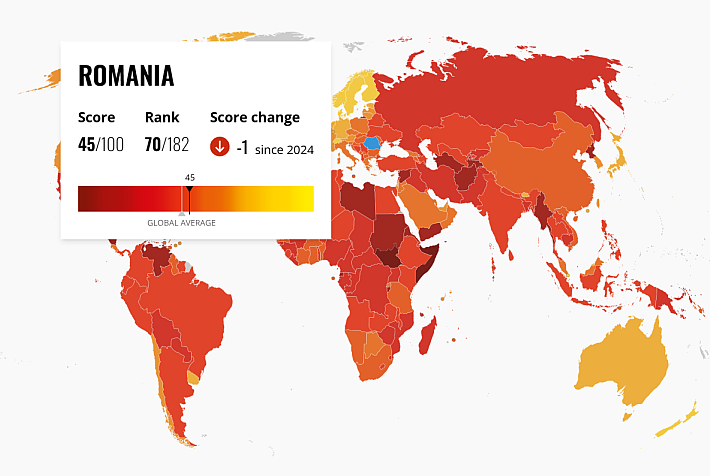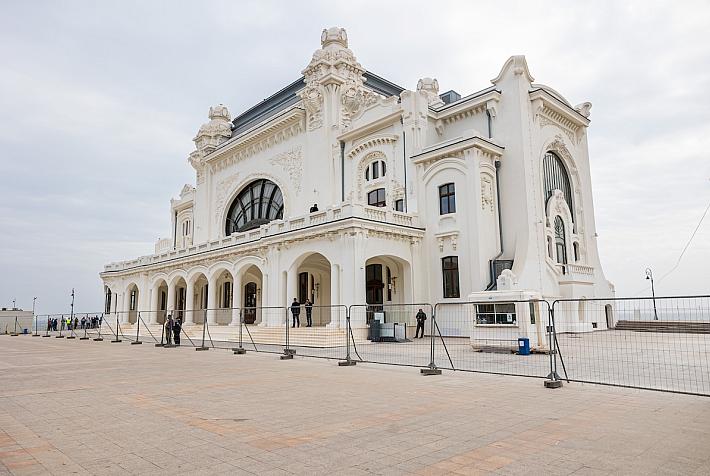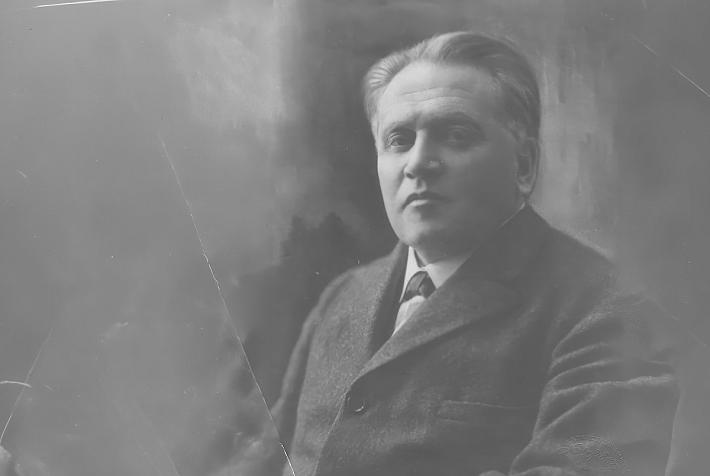Film review – The Recent and the Recovered: Transilvania International Film Festival & Il Cinema Ritrovato
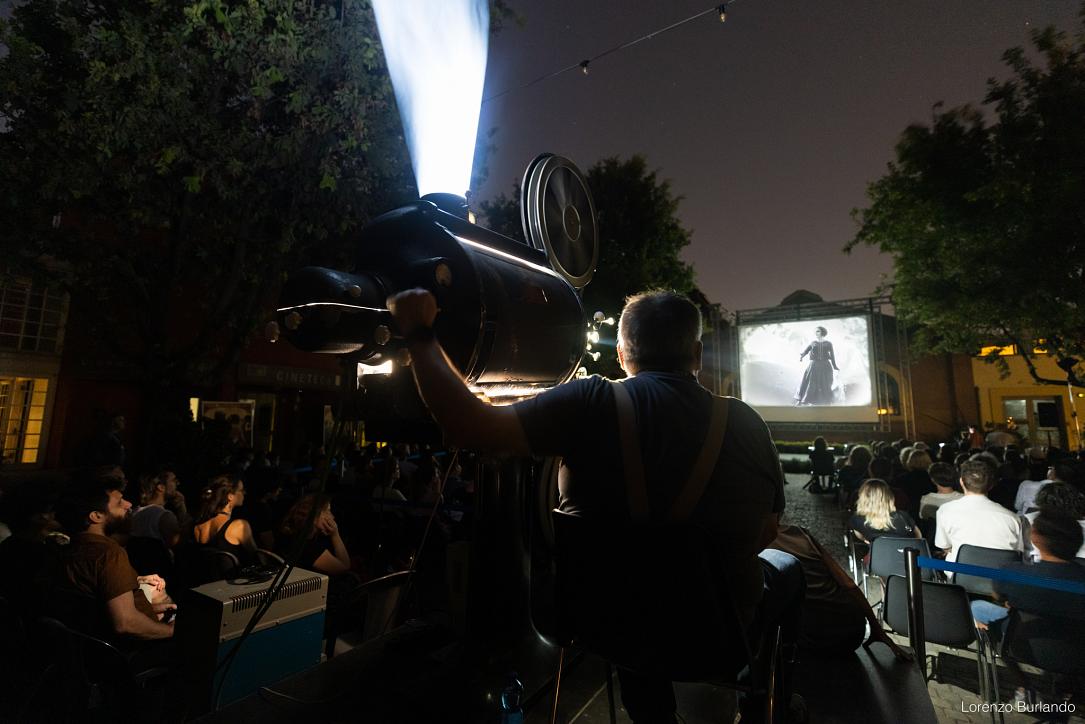
Romania’s biggest film fest, Transilvania International Film Festival (TIFF), celebrated its 21st edition between June 17 and June 26 in Cluj-Napoca. The Romanian Film Days (Zilele Filmului Românesc) is one of its main sections, a competition showcasing the most recent Romanian productions, both already premiered and yet to be released.
The winner is Miracle/Miracol, Bogdan George Apetri’s second part of the trilogy kicked off by Unidentified (2020), in which common characters are part of the same universe, and set in and around Apetri’s native Piatra Neamț. Like its predecessor, Miracle is a thriller, tense, unforgiving, and with an ending sure to spark a discussion (or confusion, depending on one’s level of scepticism, not only regarding miracles). But this is a strong movie and Apetri a skilled director, worthy of the prize. The other good thriller in competition, Emanuel Pârvu’s taut, excellently acted Mikado would have just been just as worthy a contender. Alina Grigore’s Blue Moon/ Crai nou snatched the award for best debut feature while Victor Canache’s adaptation of the popular folk tale The Goat and Her Three Kids/ Capra cu trei iezi (another genre pic, this time horror) won the Audience Award. Not surprisingly, Monica Stan and George Chiper-Lillemark’s stirring Immaculate/ Imaculat, a film that clearly stood out, both in style and approach, was awarded the prize of the international film critics, FIPRESCI. More on the other titles in the following columns (some are already running in cinemas).
The winner of What’s Up Doc, the documentary section, as of this year also a competition, is also the only documentary featured in the Romanian Days, Sebastian Mihăilescu’s docu-hybrid For Me You Are Ceaușescu/ Pentru mine tu ești Ceaușescu. The programme, bold and full of experimental forms, mixing documentary and scripted, fictional elements, was much more thrilling than the feature competition, with David Easteal’s impressive, hypnotic commuting conversation The Plains, or Jean Libon and Yves Hinant’s hilarious, absolute mindboggler of a procedural For a Fistful of Fries.
Part of the Documentary Jury was Romanian documentary filmmaker Alexandru Solomon (also former artistic director of the excellent One World Romania), and his films were paid homage in the 3x3 section. Cold Waves/ Război pe calea undelor, Tarzan’s Testicles/ Ouăle lui Tarzan, Clara B. and selected short films are just as sensational as their titles, not just in the choice of topic, but also intelligent, playful, critical, and just as relevant now as when they were released.
Elvire Popescu cinema in Bucharest will host some of the festival's titles between July 21 and July 24.
Last year I flew to Cluj from Bologna where I attended Il Cinema Ritrovato (“cinema re-discovered”), this year it was the other way around. Organised by Cineteca di Bologna, it is the most important festival dedicated to film restoration, and for thirty-six years has been showing films recovered and restored by specialised centres and labs, most of them from older decades. This is an entirely different event, a festival with no competition or red carpet, a true mecca for scholars, archivists, students, and generally a very loyal audience interested in everything from 1920s silent films to 1980s classics (The Blues Brothers).
This was my third year there and no Romanian film in the programme so far, which, one might argue – and not without reason – says a lot about about the handling of local archival material, i.e. there is very little known or shown publicly. In past years, several silent films from the National Film Archive did get restored (Independența României, 1912; Manasse, 1925; Leiba Zibal, 1931), let’s hope there is more to follow. More recent fare could also be selected, of course, I am curious if future editions will take interest. This one did include a Romanian reference (however slight the connection, I was still happy about it) Jean Negulesco’s fine noir Three Strangers. Born Ioan Negulescu in Craiova in 1900, Negulesco emigrated to France in the 1920s and from there to the US, where he eventually worked in Hollywood; his probably best-known film is the comedy How to Marry a Millionaire, with Marilyn Monroe and Lauren Bacall (1953).
There were so so many good films and programmes: a the special section dedicated to Argentine director Hugo Fregonese (Hardly a Criminal, My Six Convicts, Saddle Tramp), Jacques Tati’s perfect comedy Mr Hulot’s Holiday (1953), accompanied by a documentary about him, the homage to Sophia Loren, probably THE most famous Italian actress (her lesser seen comedy Too Bad She’s Bad is a hoot, with Vittoria De Sica, later famous for his Neorealist dramas, almost stealing all scenes), the Piazza Maggiore free open-air screenings (this year pretty ambitious for late-hour audience events), like Bertolucci’s gorgeous and devastating The Conformist, Kira Muratova’s experimental, then-censored Brief Encounters, or Charles Vanel’s dark and striking Dans la nuit (albeit with a cheesy ending forced by the studio, not an anomality back then).
This year the fest inaugurated a more transgressive section in newly renovated Europa cinema, including adult classic Deep Throat (if the title doesn’t mean anything to you, the quickest internet search will reveal it all), John Waters’s outrageous Pink Flamingos, or Invaders from Mars. These movies being shown along projections with a carbon-arc lamp, exuding a magical blue cloud of light, say it all: There is a common place for so many forms and contents here, and so much love for all.
By Ioana Moldovan, columnist, ioana.moldovan@romania-insider.com
Picture info & credit: carbon-arc projection of Changing Hues (1922) / Foto Credit: Lorenzo Burlando, curtesy of Il Cinema Ritrovato







